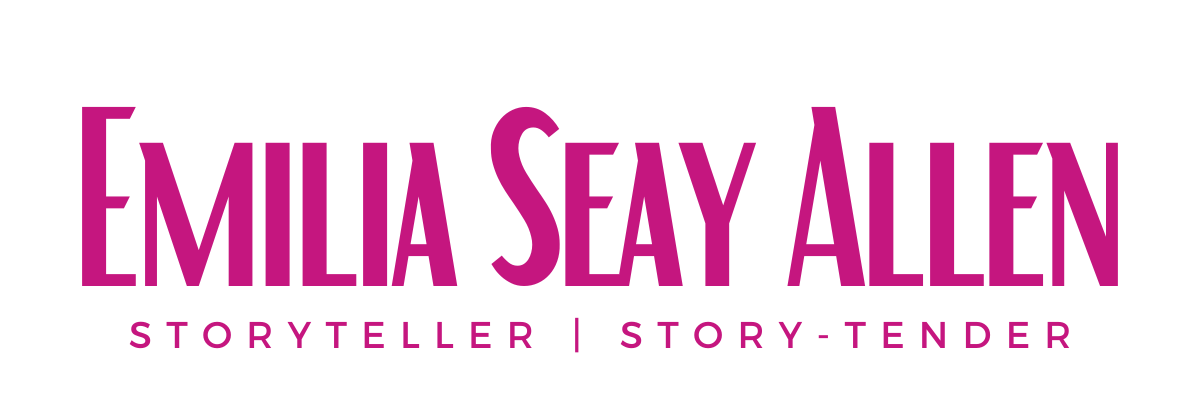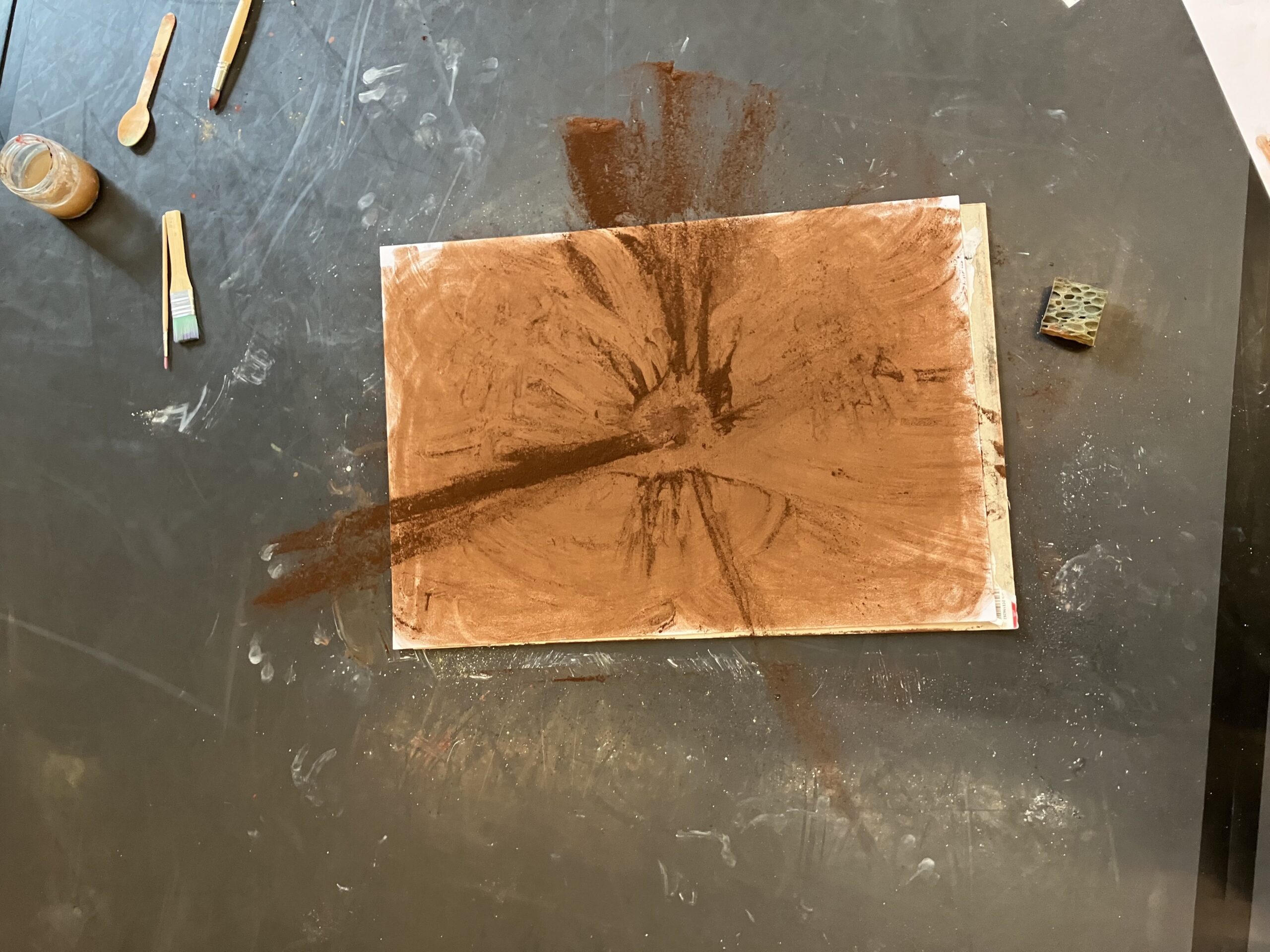I have been in Berlin for over a month now. Our first module in school, focused on playfulness, has ended, and last week was our first “Foundation Week,” in which we have a little more spaciousness in our schedule and take the time to integrate the things we’ve learned in the previous module.
This seems like a good, if overdue, time to share more about my program and my life here.
THE FACTS
There are 18 of us in the program. About half of us are from the US, and the others are from China, Finland, the Basque country, Italy, Greece, Russia/Israel, and Colombia, and several of my classmate have spent significant time in China, Sweden, Estonia, and other places. One American is the child of Iranian immigrants, one the child of Nigerian immigrants, and one grew up between the US and Cairo, where her father is from. Many students have spent significant time in various different cultures. Our instructors are American, British, Belgian, Israeli, Argentine, and Turkish, and at least one or two have spent significant time in Poland, Denmark, Turkey, and elsewhere. (As I’m learning, Polish theatre is an entity unto itself!)
Two of us are undergrads from an American musical theatre program, here on study abroad for a semester. Four of us are second-year MFA students from Columbia College in Chicago. Starting tomorrow, those four will be in different classes, and we’ll only come together for Foundation Weeks. It’s going to be a huge change not to have them with us! The rest of us are either one-year MA or two-year MFA students (and thankfully, more MA students are deciding to stay for a second year all the time!), whose degrees are accredited through Rose Bruford College in London. We range in age from, I think, 20-45 or so. It is a fascinating, kind, curious, fun, talented, diverse group.
We work in a beautiful studio on the second floor of the back building of Dock 11 Eden, with floor-to-ceiling windows that look right out into the trees. We have a little dressing room, and a shoe rack, and the studio is stocked with yoga mats, cushions, and sticks for balancing on our noses.
CLASSWORK
It’s hard to talk about our classes without getting into way too much detail. Our instructors come from a variety of backgrounds, with various expertise. We are mostly moving, and even our less movement-focused classes are focused on embodiment. Rather than teaching us one specific, rigorous technique (of which there are many—Grotowski, Lecoq, clown, Biomechanics, Alexander, Laban, etc.), we’re being exposed to elements of each. The goal, I think, is to offer us different ways of accessing the creativity of our bodies, the creativity of our collective bodies, and also to teach us those fundamental principles that these techniques share in common, so that we are building on the inherited wisdom of these older practices. One of our instructors said it well, when asked about the “intended outcomes” of our classes. She said something like: it’s hard to say, because the intersection of what we’re teaching you and what you get out of it will happen in your own body, and will come out in your own unique work. The whole school is incredibly focused on the kind of learning that can only happen experientially and kinesthetically. One of our courses involves “mark-making”—that is, playing with paints and pencils and things—but the focus is not on teaching us drawing skills, it’s on how interacting with the materials and with the act of mark-making, with our bodies, can allow us to tap into the “right-brained” way of thinking and knowing, with the experiential, experimental. We do things like draw our own hand without looking at the page, or paint with paintbrushes and then with our fingers. We also have a music class, in which I am quite sure we will never see a sheet of paper or a musical staff; all our music-making is done with our bodies, together, in a circle.
The unit that begins for us first-years tomorrow is Neutral Mask. This will involve the literal use of masks, but I think we will also learn about the mask as a concept—the clown, for example, is said to be a full-body mask. I think. Maybe that’s bouffon? Anyway, there’s real profundity to mask work, including its ancient beginnings as a way of channeling and embodying the Gods. I’ve only just scratched the surface of it in my previous work, but my classmates who have more experience with it are extremely excited, so I am, too.
We do spend exactly as much time rolling around on the floor as I promised we would, and we do very often use the phrase “rolling around on the floor.” I couldn’t be more excited.
SPEAKING OF THE GODS
I know that most of you know my obsession with religion, and with the overlap between religion and theatre, and their shared ancestry, and with my quest to figure out how to remind theatremakers and audiences that what we are doing, every time we come together for the thing we call “theatre,” is real, ancient, powerful, and transformative. I have been unsurprised but thrilled by how often words like “ritual,” “spirit,” and “mystery” have come up. This is why I chose this school, and why I do this work, of course, but there seems to be a shared understanding that what we are doing is spiritual, ancient, and that our quest for excellence in performance is in service of something far deeper. There aren’t really words for it, or I don’t have them yet. Or perhaps the unnameability is the point, and that that is why we spend so much time deeply communicating but not talking in our classes—to reach and spend time exploring together that wordless place.
It feels like we’ve just scratched the surface. Every day I find myself both sated and contentedly digesting what I have learned and experienced and, at the same time, eager for whatever comes next. There is not enough time for all of the things I want to explore, yet the things I have learned demand that I take my time over them.
FEELINGS
It has been interesting to meet myself in this context again. I have not been in a setting like this in eight years or so, and I am a very different person now. I don’t speak much in class, because I don’t have immediate words for my experience any more—certainly not ones that I think anyone needs to hear, most of the time. I find (from observing some classmates, truthfully) that I don’t need to prove my intelligence to this group. I do not need to signal that I get it, or that I have the “right” take, by speaking. Nor do I need to externally process—at least, not in class. Out of class, we talk a lot about class, and those conversations are profoundly important to the way that I am absorbing the nutrients of our experience. Most of my classmates, though not all, have more formal theatrical education than I do and can converse in more scholarly ways about theatre than I can, which I’m finding incredibly helpful.
My body feels good, moving this much. I’ve been surprised by my extant capacity, and I’m also discovering the ways that it’s been allowing me to coast by. My feet and ankles hurt all the time (we work barefoot), some of which is a result of the car accident eight years ago and the ways my body has adapted since then. Two weeks ago I pulled a hamstring, which is mostly better now, but which I think was a direct result of tightness in my feet and ankles that I pushed through, rather than attending to. It is clear to me that, in order to access the depth of this work, I will have to listen much more closely to my body and take its care much more seriously, as a discipline, than I have before. It is a gift to have work that actually makes me want to do this, and it is a gift to be engaging in practices that actually teach me how to listen to my body (as though my body and the part that listens are somehow separate!). This work feels radical, in the kinds of knowing it seeks to foster, and in the ways that it asks us to be integrated, whole, indivisible animal-souls.
There is so much more to say, but this is long enough. I am very happy, and very grateful, and I am home.

